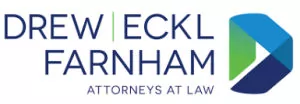OSHA's Fifth Most Cited Standard for the past reporting year is:
Respiratory protection (29 CFR 1910.134) accounting for 2,450 violations.
Do you know the differences between an air-purifying respirator, a demand respirator, and escape-only respirator, a negative pressure respirator, a positive pressure respirator a supplied air respirator and a filtering facemask? Do you know when to use each of these? Do you have procedures for using the proper respirator. Do you train and make available respirators? Are you required to do so or is it voluntary? If it is voluntary, have you provided Appendix D to the employees who choose to use them? Do you fit test respirators? Do you have medical evaluations conducted? Do you have the required records?
Failing to establish a program, failing to perform required fit testing, and failing to provide medical evaluations among other areas can lead to citations. And as you can see there are a number of questions that must be answered to properly comply with OSHA regulations for respiratory protection.
Auto body refinishing, masonry contractors, painting contractors, and wall covering contractors are some of the industries that can often be targets of OSHA investigations for respiratory protection violations.
The content of this article is intended to provide a general guide to the subject matter. Specialist advice should be sought about your specific circumstances.


